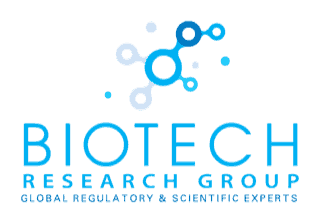Investigational New Drug (IND) Application FDA – Ensuring Safety and Effectiveness
06/18/2021
Category: Other Blogs
FDA’s Drug Registration
Drug discovery is the process of discovering a new molecule and bringing it to the sector or public. Discovering a new molecule is a lengthy process, expensive, and certainly will be accomplished by pharmaceutical companies. Out of several thousands of new compounds, just a few will be considered for testing in people, and among those few, only one, i.e., the final product, will be approved and marketed. Drugs directly act on goal websites that are accountable for a specific disease. Targets consist of cellular, molecular, and molecular chemical reactions in the human body, which is responsible for inducing the disease.
A generic drug is similar to the original brand name, dose, quality and route of administration. These don’t cost much for manufacturing and are offered at very low prices compared to original products. The procedure for earning brand-name drugs costs tens of thousands of dollars, while generic medications do not invest considerably due to lack of funds. One of the disadvantages of generic drugs is the absence of understanding in the vast majority of the populace about its presence. The most important advantage of generic medication is the cost, and frequently hospitals and physicians use generic drugs.
Drug development is the practice of bringing a new product to the market. It’s done when the last product or new compound is identified from the drug discovery process. It takes regulatory approval to advertise the drug. It features preclinical research on animals and clinical trials on humans. The results of a new medication have to be provided to the Investigational New Drug (IND) Application FDA to gain approval and begin clinical trials in people.
Preclinical studies: In drug development, preclinical research is the main stage of research which starts before the preclinical trials to accumulate the data of safety, testing and efficacy of this new drug. The main goal of preclinical studies is to ascertain the safe dose or recommended dose for its very first use in people. The new product could undergo different types of preclinical research like pharmacodynamics, pharmacokinetics, toxicology testing.
Clinical studies: Clinical studies are, once the preclinical research has been completed, the company files an IND investigational new drug FDA (Food and Drug Administration) to obtain permission for testing in people.
A clinical trial is a type of research and directed by an investigator alongside other researchers. FDA requires different clinical trial periods to know the efficacy and safety of the investigation product. As the procedure moves on through the phases, the number of volunteers participating in the trial increases. Developing a new drug requires understanding the disease, targeting the disorder, treating the disease. Researchers also run the studies in cells and tissues to finalize the lead chemical that becomes a final product or medicine in the practice of drug discovery and growth.
Adverse Drug Reaction
At the onset of these drugs’ clinical experience using a fresh medicinal product or its usages, specifically, as the curative doses or dose may not be established, all unintended and toxic responses to the medicinal product associated with any of the does should be thought to be the adverse drug reaction.
tagging: IND FDA > IND investigational new drug > Investigational New Drug > investigational new drug application


